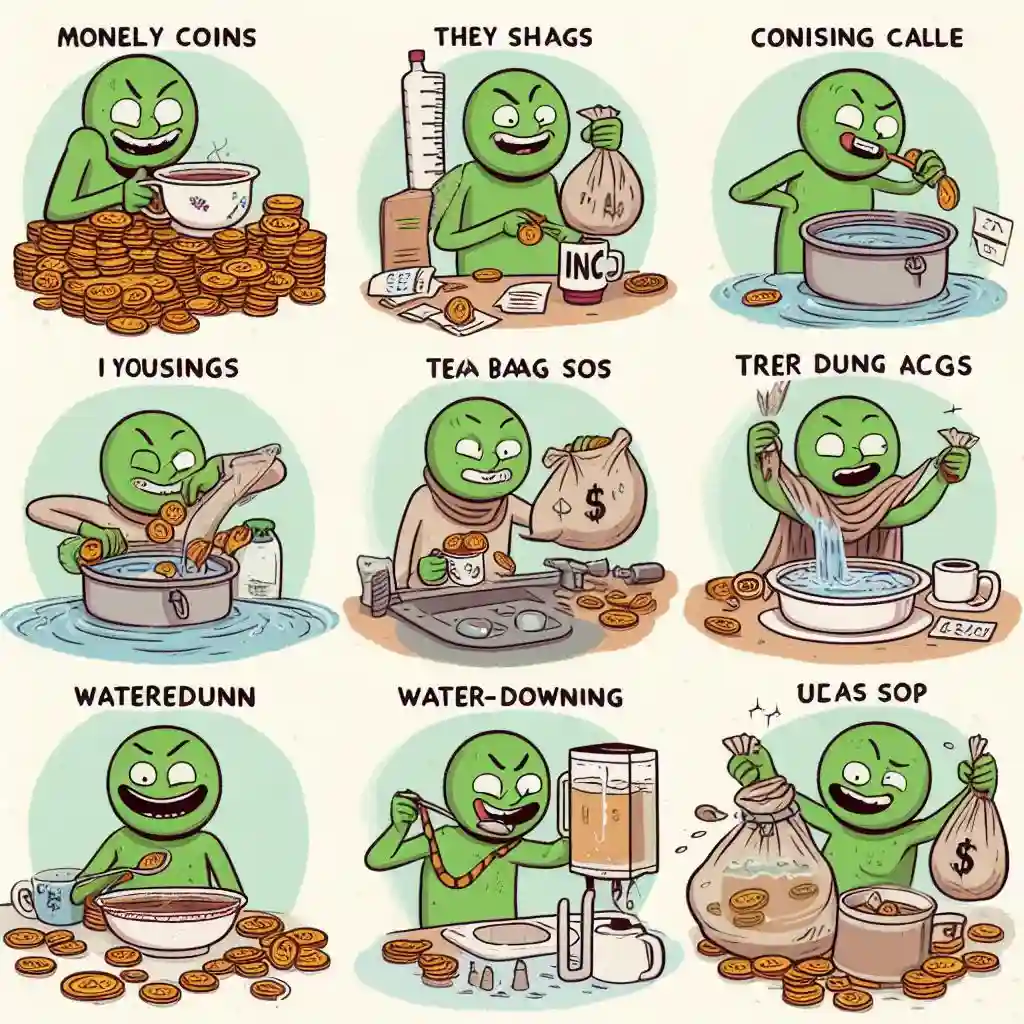عَنْ اَبَیْ ھُرَیْرَۃَ رَضِیَ اللہُ عَنْہٗ مِثْلُ الْبَخَیْلِ وَالْمُنْفِقْ،کَمثلِ رَجْلَیْنِ عَلَیْھِمَاجُنتانِ مِنْ حَدِیدِِ من ثُدَیِّھما اِلٰی تَرَاقِیْھَما،فَامَّا الْمُنْفِقُ فَلا یُنْفِقْ اِلاّ سَبَغت أو وَفَرَت عَلٰی جلدہ حَتّٰی تخفی بنانہ و تَعْفُوأثرہ،وأما البَخِیْل فَلا یُریدۃ أن ینفق شیئاََ اِلاّ لزقت کل حلقۃ مکانھا فھو یوسعھا فَلَا تتسع ( متفق علیہ)
Abu Hurayrah (may Allah be pleased with him) reported that the Messenger of Allaah (peace and blessings of Allaah be upon him) said: “The example of a person who spends is like two men with two iron rods on their bodies from chest to chest.” If a person who is addicted to spending spends, he hides all his body or (the narrator said that) he becomes wide on the whole body and his fingers are hidden in it and in walking, his footprint (due to the longness of zara) disappears. But whenever Bakhail intends to spend, every circle of this zara clings to its place. Bakhail tries to widen it but it cannot be opened.
The meaning of bakhal is to hold on to something firmly, to make it strong, and to restrain it from others. And bakhal has the qualities of “amsaq” (i.e., stopping something) and “forbidding” not spending, not giving, moreover, bakhil is a person who stops from kindness. It is a reflection of karma in the sense. Karma means donating, generosity, and spending, whereas misery means not only stopping but also stopping at the place of spending.
Imam Raghib Isfahani said: “Badhal is the name of stopping things that you have no right to stop.” That is, the comprehensive and concise definition of bakhal is that it is bad not to spend where it is necessary to spend shariah, habit and marwata.

In this hadeeth, the Prophet (peace and blessings of Allaah be upon him) gave the example of a miser and a spender. The Prophet (peace and blessings of Allaah be upon him) likened them to two people, each with a zara on his body that hid it and preserved it from the chest to the goose. ‘Tarkwa’ is the name of a bone in the upper part of the chest (bone of the goose). Whenever the spender spends, it expands and lengthens until it drags behind him and hides his feet, his walks and his footprints, while the example of a stingy man is like a man whose shirt is tight on him until his hands are from his neck. Tie up and whenever he intends to be spacious, zara clings to his goose.
Also read:Types of Martyrs and Martyr
When we read the Qur’an to understand the misery and misery
وَلاَ یَحْسَبَنَّ الَّذِیْنَ یَبْخَلُونَ بِمَا آتَاہُمُ اللّہُ مِن فَضْلِہِ ہُوَ خَیْراً لَّہُمْ بَلْ ہُوَ شَرٌّ لَّہُمْ سَیُطَوَّقُونَ مَا بَخِلُواْ بِہِ یَوْمَ الْقِیَامَۃِ وَلِلّہِ مِیْرَاثُ السَّمَاوَاتِ وَالأَرْضِ وَاللّہُ بِمَا تَعْمَلُونَ خَبِیْر۔آل عمران ۳:۱۸۰
And those who disbelieve in that which Allah has bestowed upon them by His grace, do not consider it good for themselves, but it is evil for them; soon on the Day of Resurrection, they will have a covering around their necks, and Allah is the Heir of the heavens and the earth, and Allah is Aware of your deeds.
In another place, it is said that there are some people who are stingy themselves, but at the same time they also encourage other people to be rude, even though Allah has given them wealth.
الَّذِیْنَ یَبْخَلُونَ وَیَأْمُرُونَ النَّاسَ بِالْبُخْلِ وَیَکْتُمُونَ مَا آتَاہُمُ اللّہُ مِن فَضْلِہِ ً۔ آل عمران۳:۳۷
Meaning: (Allah does not like those) who do evil and guide others to be evil, and hide what Allah has given them by His grace.
This is how the same subject is described in the Word of God. See:
قُل لَّوْ أَنتُمْ تَمْلِکُونَ خَزَآئِنَ رَحْمَۃِ رَبِّیْ إِذاً لَّأَمْسَکْتُمْ خَشْیَۃَ الإِنفَاقِ وَکَانَ الإنسَانُ قَتُوراََ
Say: “If the treasures of my Lord’s mercy were in your hands, you would have closed them for fear of being spent.” And man’s heart is very narrow.
The Holy Prophet (peace and blessings of Allaah be upon him) has guided us in every aspect of life. The edicts of the Prophet (peace and blessings of Allaah be upon him) are quoted regarding misery and misery. Due to the lack of pages, it is advisable to rely only on the Urdu text of hadiths.
Abu Sa’id al-Khudri (may Allah be pleased with him) reported that the Prophet (peace and blessings of Allaah be upon him) said: “There are two characteristics that they cannot be gathered among a believer. (Tirmidhi)
It is narrated from The Prophet (peace and blessings of Allaah be upon him) that the Prophet (peace and blessings of Allaah be upon him) said: “There will be no deceiver in Paradise, nor a person who shows favor by giving charity.” (Tirmidhi)
Abu Hurairah (may Allah be pleased with him) reported that the Holy Prophet (peace and blessings of Allaah be upon him) said: “A generous person is closer to Allaah, closer to Paradise, closer to human beings, and farther away from Hell, far from Paradise, away from humans, and closer to Hell.” (Sunan Al-Tirmidhi)
Abu Hurairah (may Allah be pleased with him) narrated that the Holy Prophet (peace and blessings of Allaah be upon him) said: “The worst habits that a person has are two, one is the one that is impatient, the other is the cowardice that is life-taking.” (Abu Dawud)
Abdullah ibn ‘Abbas (may Allah be pleased with him) reported that the Messenger of Allah (peace and blessings of Allaah be upon him) said: “He is not a believer who eats his own food and his neighbor is hungry.” (Mushaqat)
Also read:چغلی معاشرتی ناسور: پاکستان میں ایک بڑھتی ہوئی سماجی بیماری
Abu Hurairah (may Allah be pleased with him) reported that the Holy Prophet (peace and blessings of Allaah be upon him) said: “Generosity is a tree in Paradise, so whoever is generous will catch a branch of it, through which he will enter Paradise. it will remain. According to another tradition, there is a tree in Paradise whose name is “Sakha”, generosity comes from it and there is a tree in Hell whose name is “Shah”. (Sha’b al-Iman: Bayhaqi, Mushaqat, Kanz al-Amal)
Hazrat Abu Hurairah (ra) narrates that the Messenger of Allah (sallallahu alayhi wa sallam) said, “Seven things are going to destroy.” To associate with Allah. to obfuscate. To kill unjustly. Interest eating. Eating orphan’s wealth. Turning your back on the day of war. Forgotten the chaste.

- Love of wealth: Love of wealth is the first cause of misery. A wise man holds the wealth to his chest, counts it and collects it (al-Dhai jama mala wa’ida) and is happy to see it. Therefore, when this most beloved thing (wealth and wealth) is separated from him, he yearns for the separation of its loss. In order to reduce this yearning he agrees to separate the wealth from himself to the minimum extent possible. The remedy for this is to understand the reality of wealth that Allah has given us as a companion for living. Therefore, this wealth should be spent in the way of the same person who has given it. At the same time, spend generously on your family and parents that the meaning of hadith is that spending on your family is the best charity and doing charity increases wealth, does not decrease.
- 2. Desire for a long life: The love of wealth makes a person oblivious to death. A foolish person is under the illusion that he and his wealth will last forever. He forgets death. Therefore, he feels comfortable in counting the world’s most precious thing, the wealth, with him in his mind. The remedy is to remember death as much as possible. These places of the Holy Qur’an should be especially studied in which there are promises of collecting wealth and not spending in the way of God, so that instead of the love of wealth, love for Allaah can be created and this world should be considered temporary and the highest place of the Hereafter should be made the destination.
- 3. Fear of the future: Saving for the future is a good habit, but throttling the definite needs of the present and saving money for uncertain fears of the future is a sign of misery. The remedy is to get rid of the fear of the future. Future fears, no matter how terrible, are uncertain. Therefore, it is irrational to destroy the certain present for an uncertain future.
- 4. Psychological disorder: Excess of wealth is usually a sign of wealth and glory. So a stingy person wants to accumulate as much wealth as possible to become rich. And in this cycle he suffers from a psychological disorder. The remedy for this is to imagine the high places of the Hereafter, ignoring the emirate of the world.
Practical ways to get rid of misery:
The first step to getting rid of boredom is to realize whether you are suffering from anxiety or not. A foolish person refuses to believe that he is stupid or stingy. If you suspect that you’re really stingy, ask your closest friend, wife, husband, or any other close relative to get feedback about yourself openly. If the majority is calling you stupid, then assume that you are stupid. After knowing the reason, pray to Allah that Allaah will protect you from diseases like misery and misery, and may The Lord of the Worlds save you from this sin. This is because the last Messenger of Allah, Hazrat Muhammad Mustafa (peace and blessings of Allaah be upon him), has advised to avoid misery and misery. In this regard, the help of Allah can also be sought by reciting the prayers of the Prophet (peace and blessings of Allaah be upon him).
اللَّہُمَّ إِنِّی أَعُوذُ بِکَ مِنْ الْہَمِّ وَالْحَزَنِ وَالْعَجْزِ وَالْکَسَلِ وَالْبُخْلِ وَالْجُبْنِ وَضَلَعِ الدَّیْنِ وَغَلَبَۃِ الرِّجَالِ
“O Allah, I seek refuge with You from sorrow and sorrow, from humility and laziness, from misery, from cowardice, from debt and from the domination of the people” (Sahih Al-Bukhari, Vol. 2, Hadith No. 155).